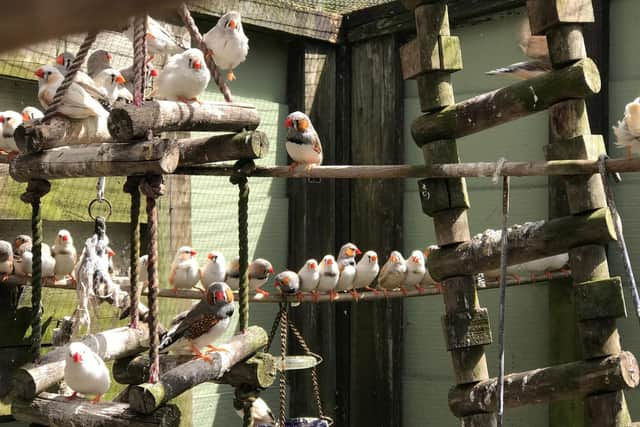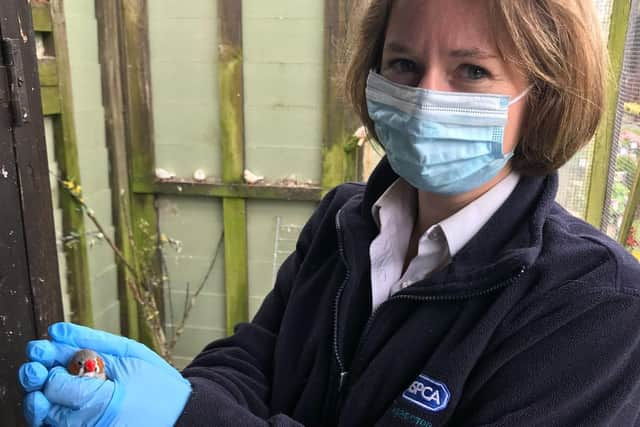RSPCA seeks homes for 156 zebra finches in Doncaster
and live on Freeview channel 276
RSPCA officers rounded up the birds from their aviary at their home in Newmarket, Suffolk, when their owner asked for help to rehome the finches due to a change in circumstances.
Twenty of the birds were caught initially and taken to the charity’s Block Fen Animal Centre, in Cambridgeshire. Officers returned last week to collect and transport the remaining birds to branches including Martlesham Animal Centre, in Suffolk; Mid Norfolk & North Suffolk branch and a private boarding establishment, both in Norfolk; and South Yorkshire Animal Centre, in Doncaster.
Advertisement
Hide AdAdvertisement
Hide AdRSPCA inspector Emily Astilberry is helping the owner to rehome the birds. She said: “Due to a change in this owner’s circumstances we were asked to help rehome her birds. We can’t always help in these sorts of situations as we have to prioritise rescuing animals from cruelty and neglect but, thankfully, due to some very helpful local centres, we were able to find spaces for them to go to.


“The birds had a lovely aviary and were all happy and healthy but finding homes for 156 birds is no easy task so we wanted to help out to ensure that these birds were found good new homes.”
Emily worked alongside her RSPCA rescue colleague (and husband!) Dean Astillberry to round up the birds. She said: “It would have been impossible to catch them all alone but, luckily, Dean and I work well together - both at work and at home! - so we were able to get them all into boxes safely.”
“Initially rounding the birds up was quite easy but as there were fewer and fewer, they got harder and harder to catch! They kept finding little places to hide and we had to spend hours rounding them all up safely. Eventually, there was just one bird left who gave us the real run-around. We did find her though, finally, hiding under a rope bridge!”


Advertisement
Hide AdAdvertisement
Hide AdThe birds will be assessed when they arrive in branch care and will then be looking for new homes. If you’re looking to offer some of these finches a home, please visit our Find A Pet website to find those nearest to you. In captivity these birds should be group housed in an equal sex ratio with lots of nest sites and should never live alone. Communal aviary housing is best with outdoor access, lots of perch space at different heights, and space for free flight.
Zebra finches feed on the ground so they need solid flooring with suitable litter material such as bark chips, wood shavings or sand. They eat dried grass seeds but in captivity do best with a mixed diet of foreign finch seed mix, some live insects, mealworms and panicum millet sprays, all provided in feeders or on the floor. They also need access to water baths and environmental enrichment like toys and swings.
To help the RSPCA continue rescuing, rehabilitating and rehoming animals in desperate need of care please visit our website or call our donation line on 0300 123 8181.
In these confusing and worrying times, local journalism is more vital than ever. Thanks to everyone who helps us ask the questions that matter by taking out a subscription or buying a paper. We stand together. Liam Hoden, editor.
Comment Guidelines
National World encourages reader discussion on our stories. User feedback, insights and back-and-forth exchanges add a rich layer of context to reporting. Please review our Community Guidelines before commenting.
